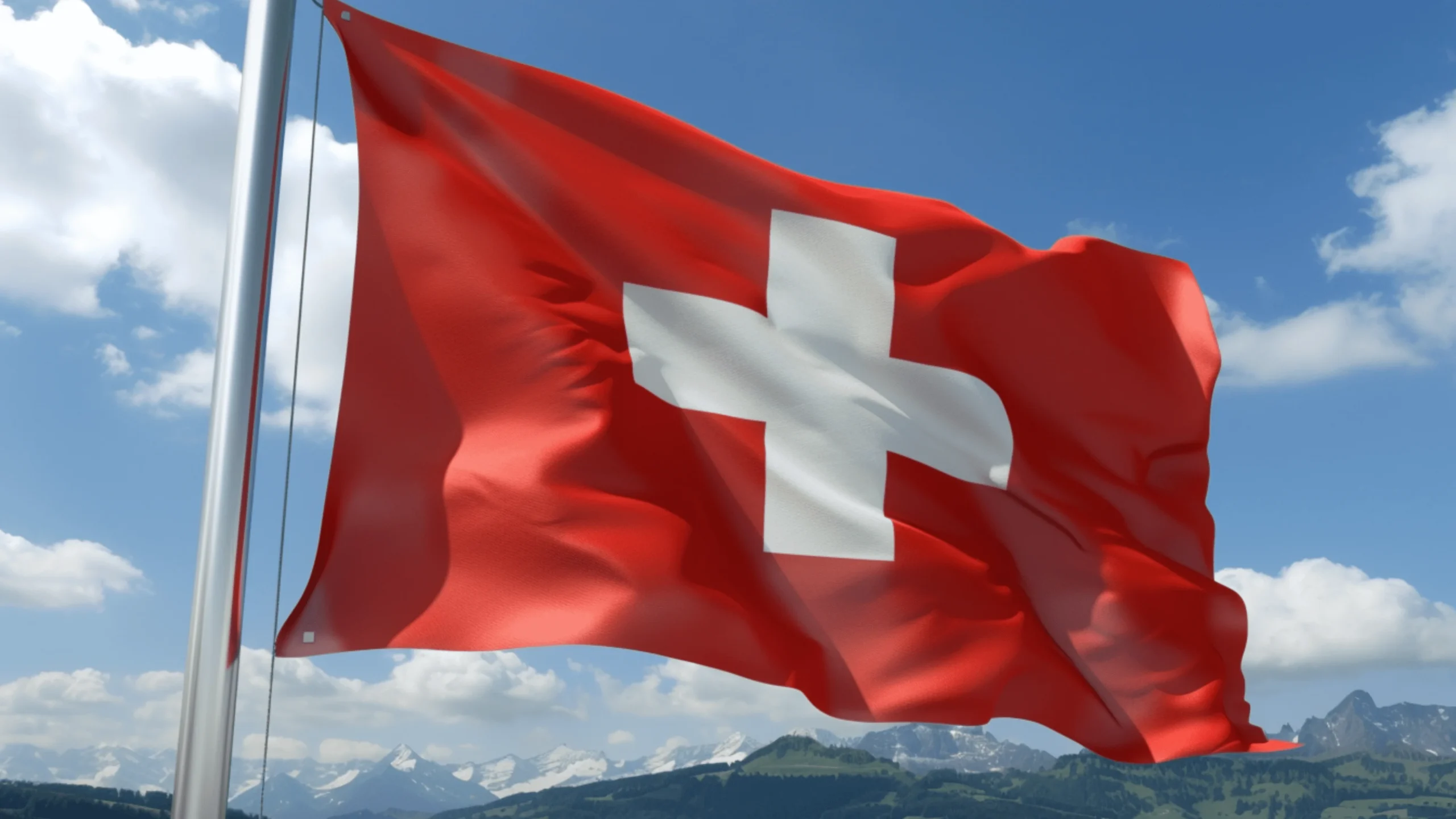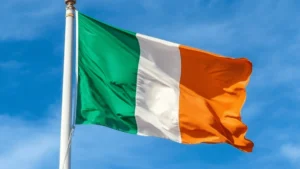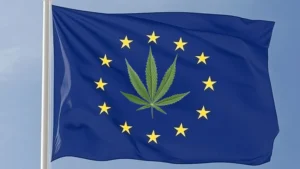Switzerland is a country known for its untouched nature, efficiency, and quality products, but CBD might not be the first thing that comes to mind when people think of Switzerland, so the question “Is CBD legal in Switzerland?” naturally arises. Yes, CBD is legal in Switzerland. Since 2017, the sale and consumption of CBD have been permitted, as long as the THC content in CBD products does not exceed 1%, making Switzerland’s regulations one of the most progressive in the whole Europe.
Swiss law is among the most progressive in Europe regarding CBD regulation, placing the country at the front line of the CBD industry. The increasing popularity and consumption of CBD products across Europe demonstrate a growing market, and Switzerland’s regulatory model is setting a criterion. Governments in many European countries are actively seeking reliable regulatory frameworks, and Switzerland offers an all-inclusive example.
This piece is part of a series exploring CBD regulations in different European countries and worldwide, aiming to clarify the fast changing CBD industry. At Hempo Solutions, we are dedicated to providing accurate and current information on CBD regulations. Moreover, we offer guidance on starting a CBD business or purchasing CBD in Switzerland and other countries. If you are interested in CBD and its legal status in Switzerland, this article is for you.
Are cannabinoids legal in Switzerland?
Yes, most cannabinoids, including CBD, are legal for import and sale in Switzerland, provided they comply with legal regulations. For CBD to be legal in Switzerland, it must contain less than 1% THC. This threshold ensures that CBD products do not have psychoactive effects, aligning them with Swiss legal standards.
THC, while traditionally restricted, is also becoming more accessible. Since August 2022, medical cannabis can be obtained in Switzerland with just a doctor’s prescription, simplifying what was once an inconvenient process involving the Federal Office of Public Health (FOPH). Additionally, Switzerland is cautiously expanding its cannabis policies through pilot programs like the one in the city of Basel. This program aims to evaluate adult-use cannabis and could potentially extend to cities such as Zurich and Geneva if successful.
Switzerland’s method is notably careful, often characterized by thorough public health assessments and steps based on public feedback. For example, between 2018 and 2021, public support for cannabis liberalization grew by 12%. Participants in the Basel pilot program have reported positive experiences, praising the quality and reliability of medical cannabis. This feedback suggests a promising future for the broader acceptance and legalization of cannabis in Switzerland.
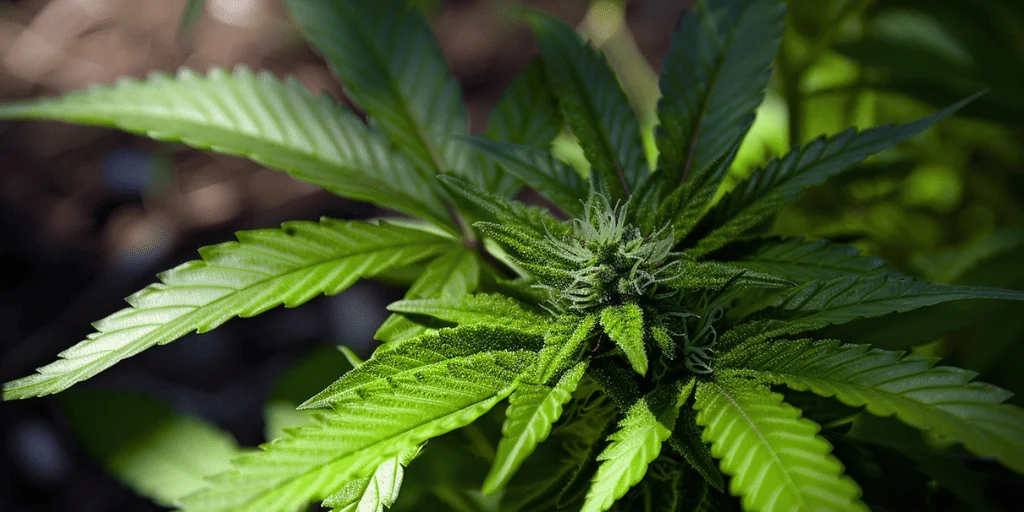
Are CBG, CBN and CBC legal?
In Switzerland, if the THC content in CBD products, where other cannabinoids are also present, is below 1%, these products are entirely legal. This approach ensures that all major cannabinoids, including CBD, CBG, CBN, and CBC, can be freely imported, sold, and used within the country. Switzerland’s regulatory environment for CBD is one of the most progressive in Europe, and it sets a clear criterion for how other cannabinoids are treated as well.
Is THC legal?
As the main component recognized as “marijuana,” THC is not entirely legal in Switzerland. Nevertheless, Switzerland is still one of the most supportive countries globally regarding THC for several reasons.
- Possession of small amounts of THC is decriminalized: in Switzerland, individuals found with minor quantities of THC are subject to fines rather than criminal charges.
- Medical cannabis is now available with a doctor’s prescription: since August 2022, Swiss residents can obtain medical cannabis through a simple doctor’s prescription. This development marks significant progress in making THC accessible for therapeutic use.
- Adult-use THC programs are rolling out in select Swiss cities: Switzerland is cautiously piloting adult-use THC programs in cities like Basel. If successful, these programs may expand to other major cities such as Zurich and Geneva.
The current legal status of CBD in Switzerland [2025]
As mentioned at the beginning of the article, Switzerland’s CBD laws are much more liberal compared to most other European countries. Firstly, the threshold for differentiating between marijuana and hemp products is higher than usual. In Switzerland, CBD products containing less than 1% THC are classified as hemp, while anything above that is considered marijuana. This 1% THC threshold is a significant departure from the standard 0.2% limit seen in many European nations. The main benefit of it is that it allows hemp farmers in Switzerland to cultivate their plants longer, through maximizing the potential benefits of CBD.
In Switzerland, CBD products are entirely legal. CBD oils and other CBD products can be freely sold throughout the country, with a few restrictions on consumption:
- A person must be at least 18 years old to legally purchase CBD products;
- CBD products cannot be labeled as medical products or advertised for their health benefits;
- The Swiss Federal Office of Public Health advises against driving after recent consumption of CBD products.
These regulations create a positive environment for the CBD market in Switzerland, allowing for significant growth and innovation within the industry. Business representatives can take advantage of these liberal laws to establish and expand their CBD businesses in this promising market.
Are CBD flowers (buds) legal?
The consumption of CBD flowers, including smoking CBD, is legal in Switzerland. The THC content in these products must be less than 1%, and producers are required to declare their marketing to the Federal Office of Public Health. This rule also applies to CBG flowers, which emphasize cannabinoids like CBG. CBD flowers are commonly sold as tobacco substitutes and are subject to corresponding taxes in Switzerland.
It is important to note that any advertising suggesting beneficial health effects for tobacco products, including CBD flowers, is strictly prohibited. Additionally, other tobacco regulations apply to CBD flowers. For instance, measures to protect against passive smoking must be ensured, meaning it is illegal to smoke in enclosed or public spaces. Moreover, products intended for smoking must carry warning labels such as “Smoking kills.”
Are CBD vapes and liquids legal?
The vaping of electronic cigarettes holds a unique position in Switzerland. Currently, it is planned for vaporizers to be regulated under the tobacco products law. However, they presently fall under food law, which introduces specific challenges.
Unlike tobacco products, there is no obligation to ensure protection against passive smoking when it comes to electronic cigarettes. This distinction creates issues concerning the sale and advertising of these products.
Additionally, Switzerland lacks its own specific regulations regarding the requirements that electronic cigarettes must meet. Instead, the country aligns its standards with those of EU or EEA member states.
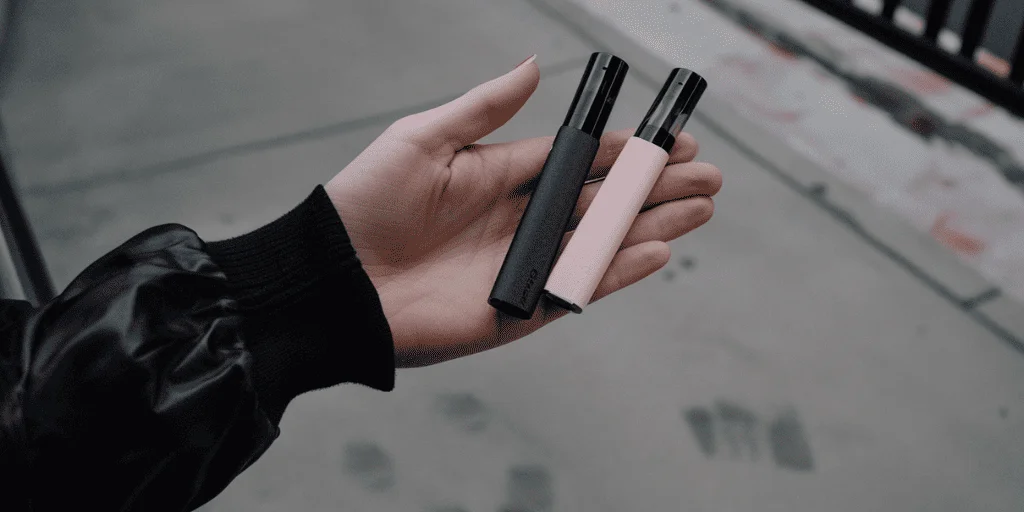
Are CBD cosmetics legal?
The legal situation for CBD cosmetics in Switzerland is a little bit complex. In principle, CBD is not prohibited in cosmetic products in Switzerland, provided these products comply with European standards and specifications. This means that the CBD used must be derived from hemp leaves and stems, adhering to strict regulations to ensure safety and efficacy.
However, THC is strictly not allowed in cosmetic products, as per the directives of most Swiss authorities. This regulatory framework aims to balance the benefits of CBD in cosmetics with public health concerns, ensuring that these products are safe for consumer use.
If you’re planning on expanding into the CBD cosmetics market in Switzerland, you must navigate these regulations carefully. Compliance with European and Swiss standards is crucial, and understanding the specific requirements for THC-free CBD cosmetics will help in formulating and marketing products effectively. Here, at Hempo Solutions, we offer many options of THC-free CBD cosmetics: white label CBD cosmetics, private label CBD cosmetics and bulk CBD cosmetics.
Authorization of “Novel Food”
CBD is categorized under “Novel Food” in Switzerland as in many other European countries. Any company wishing to produce, import, or distribute products containing CBD must prove that their consumption was significant before May 15, 1997, to avoid the novel food classification.
This regulation means that if a company wants to market hemp oil containing CBD, it generally falls under the novel food regulation. Therefore, the manufacturer must obtain authorization from the Federal Office of Public Health (FOPH) or approval from the European Commission.
In 2022, various companies, united under the European Industrial Hemp Association (EIHA), challenged the current regulations. They aimed to demonstrate the safety of CBD products to gain food approvals by proving significant CBD consumption before 1997. However, these efforts have not yet succeeded. Most CBD oils and similar products are not recognized as food in the EU and Switzerland.
Recent legal changes of CBD and cannabis
In 2020, the Federal Supreme Court of Switzerland ruled that importing CBD flowers with a THC content of less than 1% is not subject to the tobacco tax. This ruling provided clarity and financial relief for businesses involved in the import and sale of low-THC CBD flowers, allowing them to operate without the additional burden of tobacco taxation.
In 2021, Switzerland further advanced its cannabis regulation by modifying the Federal Narcotics Act to permit pilot trials involving cannabis for non-medical uses. This change is set to last for ten years and is intended to lay the preparation for future cannabis legislation. These pilot trials aim to enhance the understanding of controlled cannabis access and provide a scientifically solid foundation for future decisions regarding cannabis access regulation.
By facilitating these trials, Switzerland is positioning itself as a forward-thinking nation in the realm of cannabis legislation, focusing on evidence-based approaches. This progressive attitude not only benefits the domestic market but also attracts international attention from entrepreneurs and investors.
2025 update
CBD: As of 2025, there have been no significant changes to the legal status of CBD in Switzerland. CBD products derived from industrial hemp containing less than 1% THC remain legal and widely available.
Cannabis: The campaign, which proposes allowing individuals aged 18 and over to cultivate and possess cannabis for personal use that started in 2024, has to collect 100,000 valid signatures to trigger a nationwide vote until October 30, 2025.
Can you import CBD products into Switzerland?
Yes, most CBD products can be imported into Switzerland. Importing CBD products into Switzerland is notably easier than in most other countries for two primary reasons:
- Switzerland is not part of the EU or EEA: this independence allows Switzerland to set its own regulations without being bound by the collective policies of the European Union or European Economic Area. This autonomy simplifies the import process by reducing the complexity and variability of regulations that CBD importers must navigate.
- The one and only special requirement for imports is a 1% THC restriction: this straightforward criterion makes it clear and manageable for CBD businesses to ensure compliance. As long as the CBD products contain less than 1% THC, they can be imported into Switzerland without facing significant legal difficulties.
The individuality of the legal system of CBD in Switzerland contrasts sharply with the shared approach of the European Union. This difference can be a big advantage when importing CBD through customs, as the paperwork involved is minimal. However, it is essential to invest significant time and resources to gain access to the Swiss market. Unlike the EU or EEA, where acceptance in one member state often facilitates acceptance in others, each country must be approached individually. This means that while Switzerland offers a relatively easier import process of CBD products, the focus must be on meeting its specific legal regulations to successfully enter and operate within its CBD market.
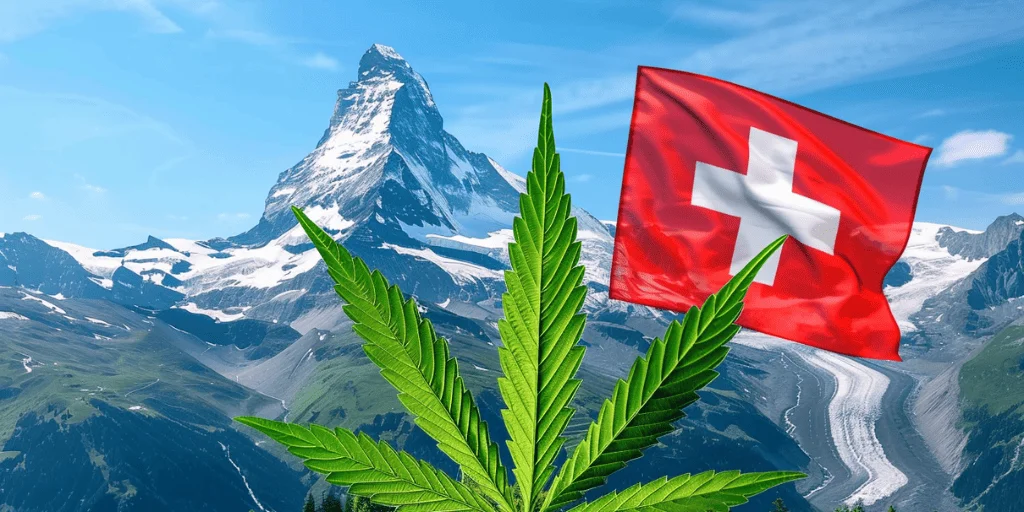
Selling CBD products in Switzerland
According to Swiss laws, CBD products can be legally sold both online and in-person. To ensure a successful CBD business, it is recommended to provide clear, consumer-friendly information about CBD that aligns with scientific research.
If you’re planning to sell CBD products in Switzerland, you must comply with several regulations:
- THC limit: all products must have a THC content of less than 1%.
- Product categorization: the category under which a CBD product falls determines the applicable legal regulations.
- Labeling and advertising: misleading health claims must be avoided. Products must be correctly labeled to provide accurate information to consumers.
- Selling to minors: although not legally required, it is recommended that providers act responsibly and carry out an age check to prevent sales to minors.
- Product safety and quality: regular checks must be conducted to ensure the safety and quality of the CBD products. This includes monitoring for contaminants and ensuring that the CBD content is accurate.
- Registration and approvals: depending on the CBD product type, specific registrations or approvals may be required. Ensuring compliance with these requirements is crucial.
These guidelines help to create a powerful framework that ensures the safety and transparency of CBD products in Switzerland’s market. By adhering to these legal regulations, CBD businesses can build trust with consumers and position themselves for success in the thriving CBD industry in Switzerland.
Tips for sourcing a CBD supplier for your business
We recommend that you thoroughly examine your supplier beforehand. Ensuring that they follow all essential CBD laws will help you avoid any legal troubles. It is crucial to work only with accredited CBD manufacturing professionals. If you’re sourcing CBD for starting your business operations in Switzerland, your supplier should provide proof that their CBD products contain less than 1% THC and are extracted from hemp. This can be proven by third-party laboratory testing.
If you are seeking a reliable partner to supply your CBD business, consider Hempo Solutions. We are a German company that offers CBD in bulk, as well as CBD private label and white label products. We take pride in ensuring strict compliance with the law, making us a trusted wholesale partner for your CBD business. With extensive experience in the industry, we can provide you with high-quality products and reliable CBD business consultations.
Should you have any questions regarding the CBD products, or any legal inquiries about CBD regulations in Switzerland, do not hesitate to contact us. Our team is committed to providing prompt and informative responses to assist you in navigating the legal landscape and ensuring the success of your CBD business. Remember that choosing a compliant and experienced supplier is a critical step in establishing a reputable and legally sound CBD business in Switzerland.
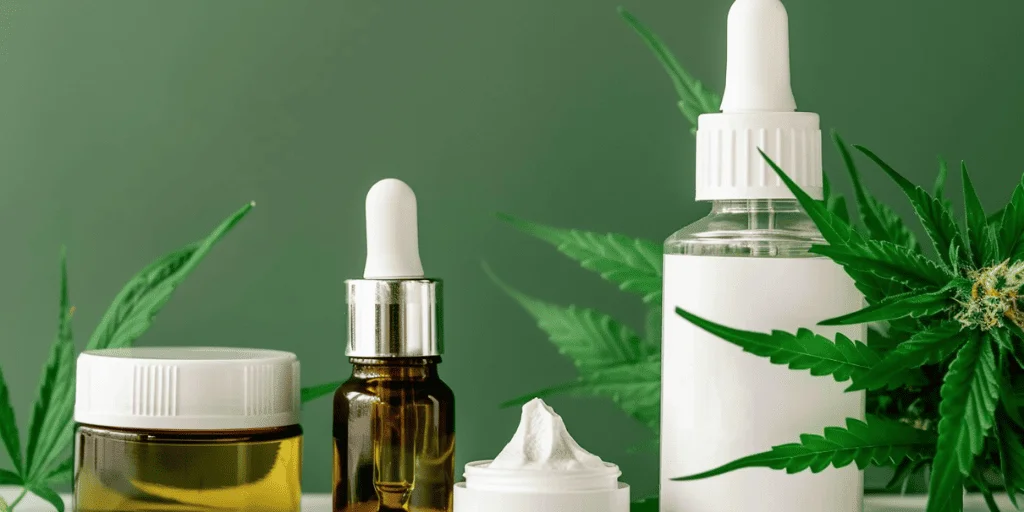
Final thoughts
In Switzerland, CBD products are permitted as long as they contain less than 1% THC. CBD items are widely available and can be purchased wherever tobacco products are sold or in other places. Furthermore, you are allowed to import CBD into Switzerland, provided it contains less than 1% THC.
Switzerland’s relaxed attitude on CBD and other cannabinoids, combined with its evolving policies on medical and adult-use cannabis, demonstrates the country’s unique approach to regulation. The Swiss insist on doing things their own way, creating an environment that is supportive of the CBD industry in 2025 and foreseeable future.
Hopefully, this answered most of your questions regarding the legal status of CBD in Switzerland. If you have any other inquiries, please contact us. For those interested in the legal status of CBD in other countries, you can read our articles about:
Featured Articles

Blog Home
No Content
